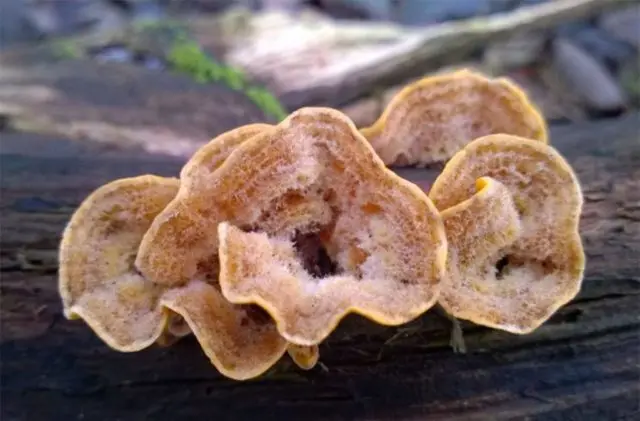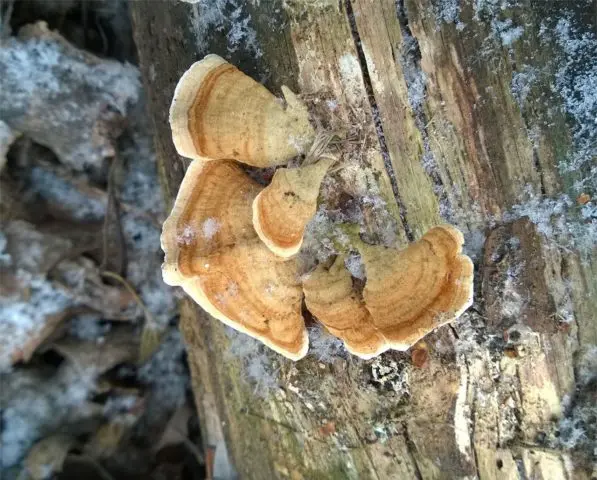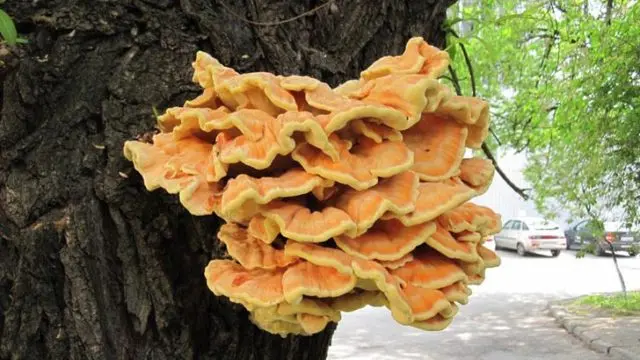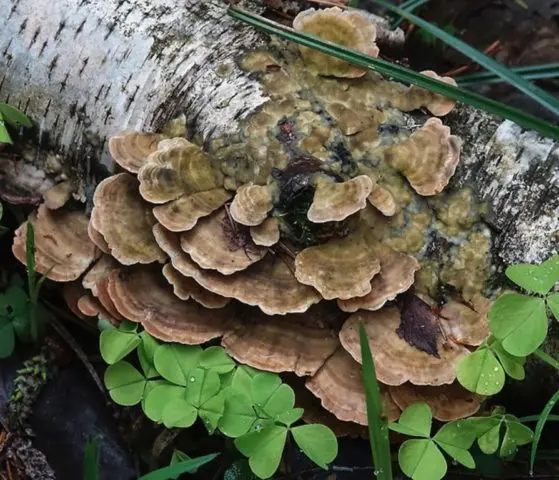Contents
Stiff-haired Stereum is an inedible representative of the Stereum family. It prefers to grow on stumps, dry wood, on living damaged trunks. The variety is distributed throughout Our Country, bears fruit throughout the warm period. The mushroom is considered medicinal and is used in folk medicine.
Where does Stereum Stiff-haired grow?
The variety grows on deadwood, stumps of deciduous and coniferous trees. Stiff-haired stereoum grows on rotten wood as a saprotroph, thus playing the role of a forest orderly, and on living damaged trees as a parasite, causing a white gil. Damaged trunks begin to quickly collapse and die. The species grows in large groups, forming multi-tiered families in the form of wavy ribbons.
What does a stiff-haired stereome look like?
The species is distributed throughout Our Country, it can be identified by a small fan-shaped fruiting body with outstretched-bent edges. The surface is hairy, pubescent, painted in yellow-brown color. After rain, it becomes covered with algae and acquires a slimy greenish tint. The underside is smooth, soft canary in color, changing color to dark orange or brown with age. After frost, in early spring, the surface becomes grayish-brown with light wavy edges. The fungus is attached to the wood with the entire lateral side, forming long multi-tiered rows.
The species reproduces by colorless cylindrical spores, which are located in a white spore powder.

Is it possible to eat stereum hard-haired
Stiff-haired stereoum is an inedible species, as it has a hard cork pulp. There is no taste or smell. The fungus begins fruiting from June to December, in regions with warm winters it can grow all year round.
Similar species
Stereum hard-haired, like any variety, has twins. These include:
- Felt. The variety is distinguished by its large size, velvety surface and red-brown color. The fruit body is attached to the substrate with a small part of the lateral side. The underside is matte, slightly wrinkled, gray-brown in color. The variety is inedible, as it has a hard cork pulp, odorless and tasteless. Distributed in the northern temperate zone, bears fruit throughout the warm period.

- Polypore sulfur yellow, conditionally edible mushroom. In cooking, only young specimens are used, since the pulp has a pleasant sour taste. The species grows on live wood not high above the ground. It can be recognized by a fan-shaped pseudo-hat ranging in size from 10 to 40 cm. The surface has an orange-yellow color with a slight pink tint. The snow-white flesh of young specimens is soft and juicy, has a sour taste and a delicate lemon aroma.

- Trihaptum double, inedible mushroom. A small fruit body is located on dead wood in multi-tiered groups. The pseudocap is semicircular, irregularly fan-shaped. The surface is felt, becoming smooth with age. The color is light gray, brown or golden. Distributed throughout Our Country. Comes into fruiting from June to September.

Application
Stereum hard-haired has healing properties. The fruiting body has antitumor and antibacterial properties, so it is widely used in folk medicine. Decoctions and infusions stop the growth of cancer cells, fight malaria, and help with Ehrlich’s sarcoma and carcinoma. It is possible to use the gifts of the forest of this species only strictly according to the rules, otherwise there is a high risk of poisoning.
Conclusion
Stiff-haired Stereum is an inedible variety of the Stereum family. The species grows on dry and damaged wood, in deciduous and coniferous forests. Due to its medicinal properties, it is widely used in folk medicine.












